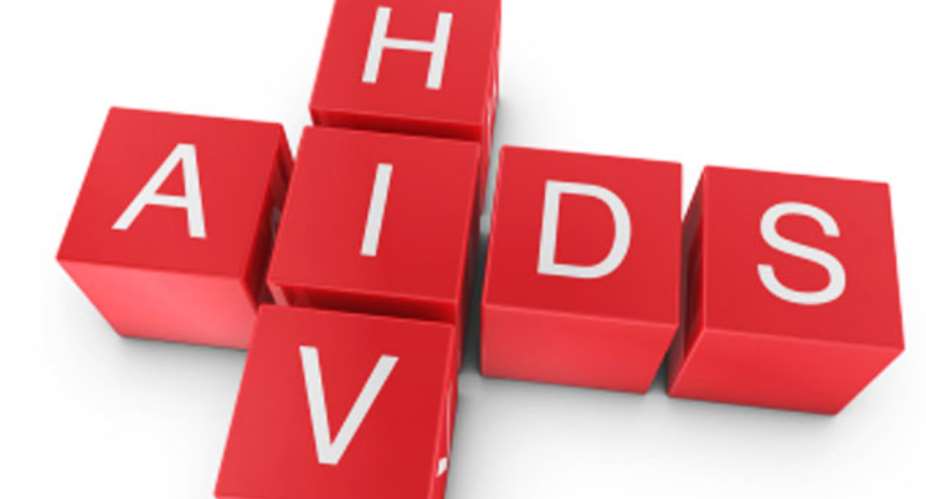The Ghana AIDS Commission is hopeful it can receive financial support from the United States President’s Emergency Plan For AIDS response PEPFAR and the Global Fund, to support its 95 – 95 – 95 UNAIDS targets for controlling the epidemic.
The 2030 target is a graduated effort from the 90 – 90 – 90 targets which aims at ensuring that by the end of the year 2020: 90% of all persons should have tested for HIV/AIDS; 90% of persons who test positive are on sustained antiretroviral therapy and 90% of all persons on Anti Retroviral therapy have suppressed viral loads.
Unfortunately, apart from the Western Region which has been selected by PEPFAR to pilot scalable epidemic Infection Prevention and Control protocols, other regions in Ghana will not meet the expiring targets by the end of this year.
Addressing a training held by the United States Embassy for health journalists, Programme Manager for the National AIDS/STI Control Programme Dr. Ayisi Addo pointed out that only 58% of Ghanaian residents know their HIV/AIDS status.
He added that 52% of people who know their status are not on treatment while 68% of persons on treatment have suppressed viral loads.
Dr Ayisi Addo pointed out that though chances of meeting the end of year targets are bleak, the Ghana Aids Commission has set out a short term end year 2020 target; a 2021 – 2023 Medium term and 2024 – 2030 long term strategy to drive the country towards hitting the 95 – 95 – 95 goal by the year 2030.
He outlined that immediate efforts will include Mother to Child Infection Prevention; focused efforts among key populations including Female Sex Workers (FWS) and Men with sexual preferences for Men (MSMs) who constitute the highest prevalence rates.
“We also intend to roll out the self testing and pre-exposure prophylaxis for key populations and groups that are at risk and to provide enhanced and differentiated service delivery for people living with HIV so we can meet them at the point of their needs...” Dr Ayisi listed.
The AIDS Commission also gave assurances it is smoothening out all Antiretroviral drugs supply chain bottlenecks brought about by the COVID 19 pandemic while providing PPEs for models of hope and health staff rendering services to patients.
Dr Steven Ayisi Addo was positive Ghana should be hitting a 92% target by the year 2023 per its medium term projections with a further forecasted 95% before 2030.
He however pointed out that the projections are drawn on assumption of scaled up funding from its partners cardinal among which are the Global Fund and PEPFAR which has for the past 17 years invested some $85 billion into supporting HIV/AIDs infection prevention and control measures across several countries.
“Within the period, we are looking at some 94 million for HIV/AIDs and a total of 238 million for Tuberculosis and Malaria. We are counting on financial support from PEPFAR which should start coming in by October and we have also submitted application to Global Fund and waiting for response.”
He stressed, “We are discussing how nobody should be left out and we are factoring in the concept of sustainability of financing because these funding sources are dwindling and there must be incremental budgetary support and funding.”
Ghana’s HIV/AIDS prevalent rate stands at 1.7%. Among globally classified key risk groups the prevalence rate among Female Sex Workers in Ghana is 4.5% while MSMs post a high 18% rate.
Within prisons the HIV/AIDS prevalence rate dropped from 2.3% in 2018 to 1.8% in the year 2019.
Among pregnant women, the rate dropped from 2.0% to 2.4% in the same period.
In the year 2019 20 thousand people were infected with the disease bringing Ghana’s total number of persons documented as living with HIV/AIDs to some 340,000 out of which children constitute 5%.





 Ejisu by-election: Aduomi warns NPP against voter intimidation
Ejisu by-election: Aduomi warns NPP against voter intimidation
 High Court orders implicated four NDA officials to present defence
High Court orders implicated four NDA officials to present defence
 Let’s all be matured, patriotic to have a peaceful election this year – Dampare ...
Let’s all be matured, patriotic to have a peaceful election this year – Dampare ...
 Mahama's administration saw thievery that knew no bounds; stole from market wome...
Mahama's administration saw thievery that knew no bounds; stole from market wome...
 GRA/SML deal: Always read the stories behind the headlines or you'd look stupid ...
GRA/SML deal: Always read the stories behind the headlines or you'd look stupid ...
 GRA/SML Contract: It takes some 'wild' boldness for a president to make this dec...
GRA/SML Contract: It takes some 'wild' boldness for a president to make this dec...
 Elisu By-election: "If you call yourself a man, boo Chairman Wontumi again" — Bo...
Elisu By-election: "If you call yourself a man, boo Chairman Wontumi again" — Bo...
 Fuel tanker driver escapes with his life after tanker goes up in flames near Suh...
Fuel tanker driver escapes with his life after tanker goes up in flames near Suh...
 Uniform change: ‘Blue and white are brighter colours’ — Kwasi Kwarteng explains ...
Uniform change: ‘Blue and white are brighter colours’ — Kwasi Kwarteng explains ...
 MoE not changing all public basic school uniforms but only newly built ones — Kw...
MoE not changing all public basic school uniforms but only newly built ones — Kw...
